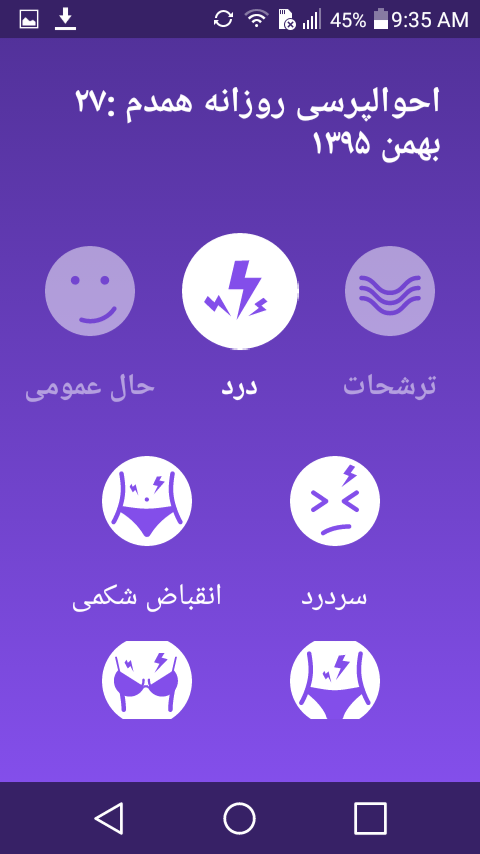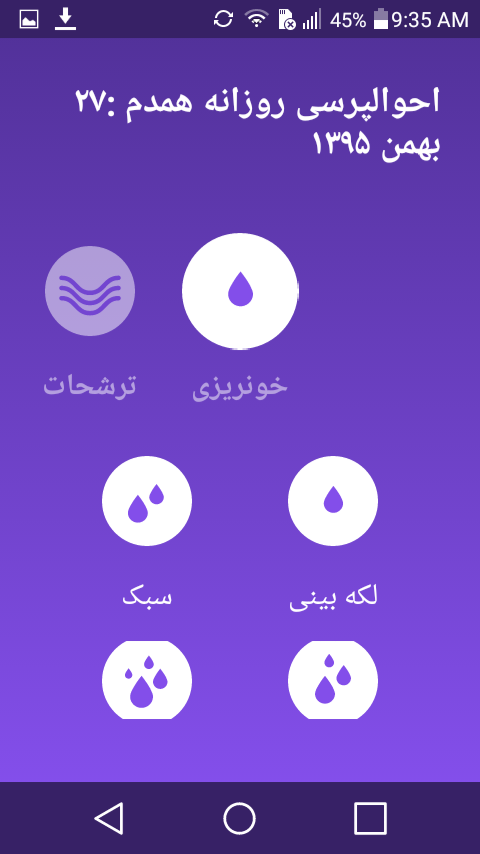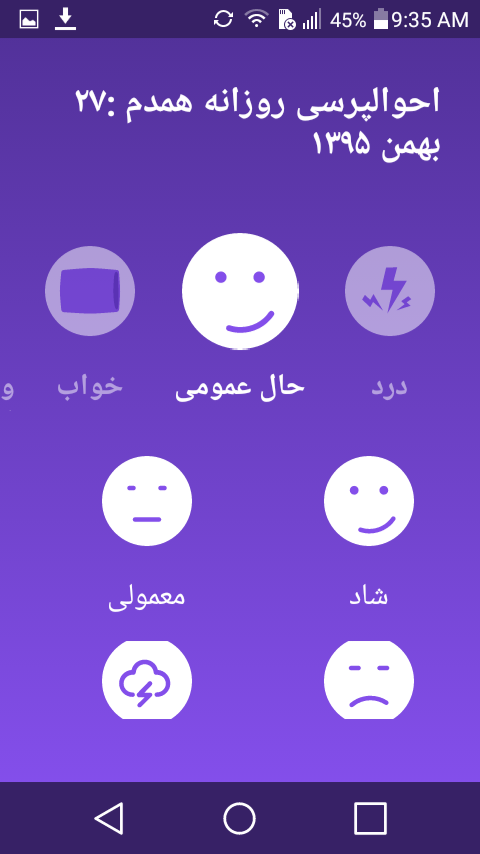[ad_1]

Atta Kenare / AFP / Getty Images
When Silicon Valley started building smartphone apps for women’s health a few years ago, venture capitalists and startup founders gravitated toward period-tracking. Hamdam, an app aimed at Iranian women, offers the same service. Except that Hamdam, which launched this weekend, uses period-tracking as a Trojan horse to give women in Iran access to information about contraception, STDs, rape, sexual harassment, and domestic violence. Hamdam also provides legal language that women can use to strengthen their rights in a marriage contract, which are standard in Iran and typically favor the husband. Text inside the app covers rights around child custody and the ability to work, to continue education, or to seek a divorce.
Hamdam is the second app to be spun out of IranCubator, an app development program launched last year by United for Iran, a Berkeley-based nonprofit formed after the 2009 uprising in Iran. IranCubator was conceived as a way to leverage the Bay Area’s software expertise to promote civil rights — and take advantage of the explosion of smartphones in Iran — by running a global contest to build Android apps for social good. (Its first offering was RadiTo, a podcasting app that launched in February to help Iranians access banned foreign stations like the BBC and eventually create podcasts of their own.)

A screenshot from Hamdam asking the user whether she is experiencing any pain associated with her period.
Soudeh Rad, the French-Iranian gender equality activist who submitted the idea for Hamdam, told BuzzFeed News that she felt compelled to focus on sexual health because the topic can be so hard to broach. “We come out of Iran and we take all the taboos with us,” she explained, adding that the scant information available to women in Iran tends to be “biased, heteronormative, and male pleasure–centered.”
That restrictiveness led Rad to the idea of creating Hamdam as a Trojan horse: The app labels itself as a period tracker, and contains plenty of information about menstruation, but also covers topics to empower Iranian women and help them exercise their rights.
Hamdam’s creators say that every aspect of the app is tailored to the needs of Iranian users, from content to distribution to privacy. The app is launching on Android, the most widely used operating system Iran. But users don’t have to rely on Google's Play app store to find it. They can also download Hamdam on popular channels of Telegram, a messaging app that has roughly 20 million users inside Iran.
In an effort to circumvent potential censorship issues and low bandwidth connections that could slow Hamdam’s momentum, the app's developers plan to release an Android application package (APK) so that the app can be downloaded by email, Reza Ghazinouri, a co-director of United for Iran, told BuzzFeed News.

A screenshot from Hamdam asking the user how light or heavy her period is.
Personal information fed into the app will only be stored on the user’s phone, with no communication between the client and server, Ghazinouri said. For all its apps, IranCubator also uses an independent firm in Berlin to run a full penetration test, which looks for vulnerabilities a hacker could exploit and then implements all the firm's security recommendations. In Hamdam’s case, that included disabling screenshots. Rad just finished some beta testing with users in Iran last week. “As soon as they understood it was an app, in their mobile [devices], and not connected to a server, they kind of became super excited about it,” she said.
When developing the app's content, the goal was to make Hamdam as accessible as possible. According to Rad, it's the first period-tracking app in Iran that lets people use the Persian calendar. She also tried to avoid anything that might label the app sensitive content for users under 18. The information about self breast exams, for instance, includes detailed descriptions, but no pictures. That philosophy extended to the text as well: “The wording and language used in the app is not designed for only Tehrani upper- and middle-class women — it’s designed for everyone,” Ghazinouri told BuzzFeed News.

A screenshot from Hamdam asking the user how her general mood is.
[ad_2]
